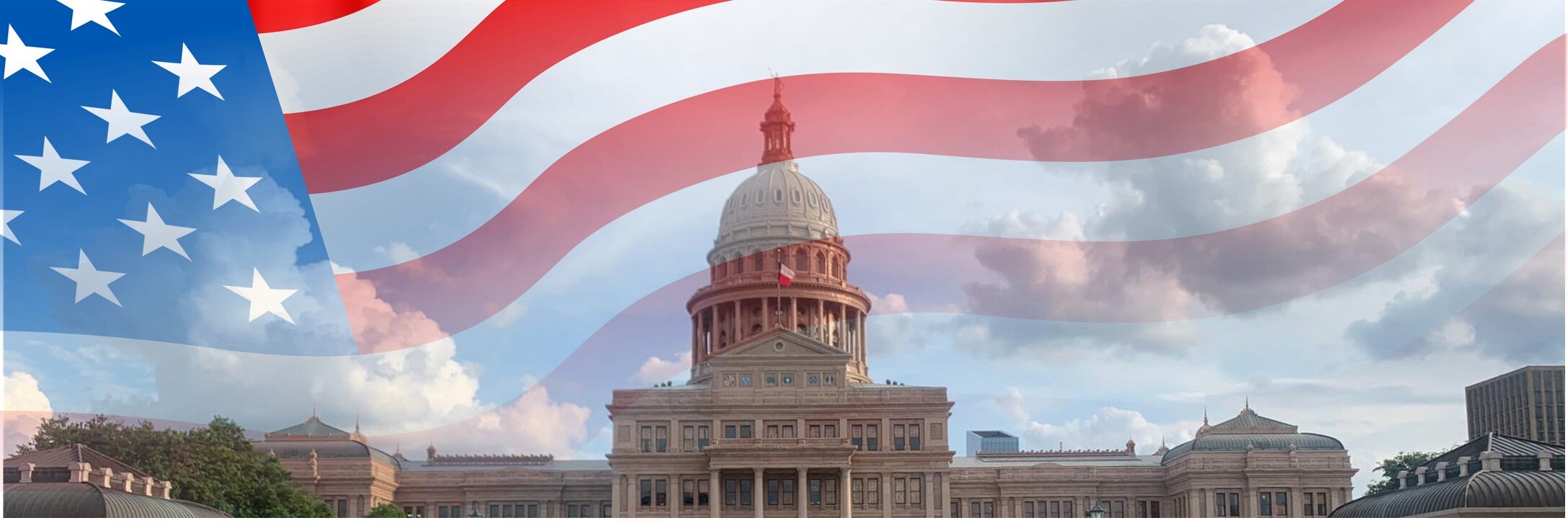
Intelligence Community Security Clearance Appeals
Federal Security Clearance Appeals Lawyer representing federal employees across the Nation. Paul N Jones can represent federal employees in all security clearance law matters. Many federal positions, including the DOD and DHS employees, must obtain and maintain a security clearance as a condition of their federal employment. The type of clearance needed will depend on the nature and scope of your position.
Paul N Jones Law Firm
National Representation across the United States
We understand how important a security clearance is to retaining federal employment. As a former FBI Attorney, Paul N. Jones has personal experience in the security clearance application and appeals process and can provide comprehensive representation.
We can represent:
- Federal employees who are applying for security clearance
- Federal employees who are concerned about losing their security clearance
- Federal employees whose security clearances have been denied, suspended, or revoked and who want to appeal
Whether you need confidential, secret, top-secret, or SCI-level security clearance, Attorney Paul N, Jones is here to help you preserve, enhance, or defend your federal career.

Federal Security Clearance Appeals Lawyer representing federal employees across the Nation. Paul N Jones can represent federal employees in all security clearance law matters. Many federal positions, including the DOD and DHS employees, must obtain and maintain a security clearance as a condition of their federal employment. The type of clearance needed will depend on the nature and scope of your position.
Paul N Jones Law Firm
National Representation across the United States
We understand how important a security clearance is to retaining federal employment. As a former FBI Attorney, Paul N. Jones has personal experience in the security clearance application and appeals process and can provide comprehensive representation.
We can represent:
- Federal employees who are applying for security clearance
- Federal employees who are concerned about losing their security clearance
- Federal employees whose security clearances have been denied, suspended, or revoked and who want to appeal
Whether you need confidential, secret, top-secret, or SCI-level security clearance, Attorney Paul N, Jones is here to help you preserve, enhance, or defend your federal career.
Security Clearance Appeals
Everything from traffic tickets to debt and even personal matters such as gambling addiction can play into the government’s decision to deny, suspend, or revoke a security clearance. In today’s heightened security climate, it is not unusual for the government to scrutinize your background and affiliations in great detail.
The Security Clearance Appeals Process
We represent individuals in security clearance appeals. The process varies depending on the organization where the cleared individual is employed. After an individual receives a security clearance denial, there are several appellate options for federal employees and government contractors. The process generally proceeds according to the following steps.
Security Concerns are First Raised
Typically, a security clearance case first arises at the investigation stage. Following the submission of the initial SF-86/e-QIP security clearance package or during the security clearance investigator’s interview, security concerns could develop. There are countless examples of security concerns that may arise. One example is where there has been an arrest that has not been previously disclosed in the SF-86/e-QIP and is then raised by the investigator. Another example may be when the investigator asks about inconsistencies in one’s financial background that raise security concerns. However security concerns arise, they will be evaluated to determine whether the individual may have continued or no access to classified information.
Agency Adjudicators evaluate Security Concerns.
Once a security concern is raised through an investigation, the agency adjudicator’s next step involves a security review. For most government contractors and federal employees, these concerns are reviewed by the DCSA Consolidated Adjudication Services (CAS). CAS processes security clearances for most DoD employees and related government contractors. After the investigation is submitted, CAS determines to either grant the security clearance or issue a Letter of Intent (LOI) to deny the requested security clearance. Security clearances handled by other federal agencies (e.g., CIA, NSA, DIA, NGA) follow a similar path at this stage.
Statement of Reasons (SOR) is Issued
When a security clearance is not approved, the CAS or other governmental entity (depending on the individual’s place of employment) issues a Statement of Reasons (SOR) that becomes the focus of a security clearance appeal. An employee, especially a government contractor, will likely receive some information from his or her Facility Security Officer (FSO) before accepting the SOR. The allegations contained within the SOR will be the start of any legal defense to the issues raised.
When our law firm consults with potential clients who have been issued an SOR, the first step is to go over the factual basis for the security concerns in depth, find out whether any or all of the allegations are true, and whether there are key mitigating factors to address the security concerns. A significant level of detail is needed to fully respond to the issues raised by the SOR. Following the SOR, the process moves to the response and appeals stage, depending on whether a federal agency or a government contractor employs the individual.
Appeals Process for Federal Employees
For federal employees, the LOI, along with the issuance of the SOR, is the start of the security clearance process. Generally, the first step, depending on the individual federal agency involved, is for the individual to notify CAS of his or her desire to respond to the SOR and whether the individual wishes to request copies of the pertinent documents and records on file relied upon by CAS to respond fully. Subsequently, the federal employee will respond in writing to the contentions in the SOR or to the individual federal agency involved. As previously noted, other federal agencies, such as the CIA, NGA, DOE, etc., have separate but similar appeals processes.
Following receipt of the federal employee’s response to the SOR, the clearance adjudicator (CAS in this instance) will either grant the clearance, seek more information, or deny the clearance. If the clearance adjudicator agrees with the federal employee’s written response, the matter is resolved, and the individual’s security clearance is approved. If not, the next stage is for the federal employee to appeal the adverse security clearance decision. A federal employee’s appeal of an adverse clearance decision by CAS is completed either by requesting a decision from his or her agency’s personnel security appeals board (PSAB) or by asking the appointment of an administrative judge (and a hearing date) from the Defense Office of Hearings and Appeals (DOHA).
We recommend federal employees and government contractors first appeal an adverse clearance decision from CAS to DOHA. If the federal employee does not fall under CAS, the individual’s matter can go to a more senior-level adjudicator instead of a DOHA administrative judge. For DOHA cases, the administrative judge will hold a hearing, permitting an individual to present evidence and examine (and cross-examine) witnesses. Following the hearing, the administrative judge will issue a recommended decision that will go to the agency’s PSAB for consideration. The PSAB, generally consisting of three members, will then vote on whether to grant the security clearance. It is better to have a complete record before the PSAB to provide the best chance of success on the clearance action, so a hearing is generally recommended.
For federal employees of independent federal agencies, such as those with the CIA, NGA, NSA, etc., there is a similar adjudication process involving a senior-level adjudicator instead of a DOHA administrative judge.
Appeals Process for Government Contractors
The process of rebutting an SOR is somewhat different for government contractors than for federal employees. The clearance process falls under DoD Directive 5220.6, Executive Order 10865, and Executive Order 12968. A government contractor will normally be provided a letter from DOHA with an attached SOR and asked to answer five questions. Individuals will be required to respond in 20 days with a notarized answer to the security concerns in the SOR and asked whether they wish to have a hearing or a written decision.
Following the government contractor’s answer, DOHA can withdraw the SOR, and access can then be granted. However, most security clearance matters move to the written decision or hearing stage. Our law firm generally recommends that government contractors request a hearing before an administrative judge. We have found in many cases that live hearing testimony can make a key difference in attempting to obtain a positive result regarding the security clearance appeal. Live testimony can be in person or by videoconference.
If a written appeal (no hearing requested) is made, then the government will send the applicant a File of Relevant Material (FORM) that contains the evidence against him or her in terms of the alleged security concerns, and he or she will have the opportunity to rebut these security concerns in writing. However, suppose a government contractor elects an administrative judge and hearing. In that case, there will be the opportunity to present all of the individual’s documentary evidence to maintain or obtain one’s clearance and to examine witnesses in this case to support granting a clearance.
If a person has significant security concerns, it is crucial to request a hearing because we have often found that administrative judges tend to place more weight on direct testimony in more serious clearance cases. If the hearing goes forward, the administrative judge will review the evidence presented and issue a final decision on the security clearance, barring a further appeal. The government contractor’s security clearance will be denied if no response is elected (written or in the form of a hearing request).
Suppose an adverse security clearance decision is made, either in response to the written record or by an administrative judge. In that case, The federal employee can appeal the decision to the DOHA Appeal Board. Following the ruling by DOHA or the DOHA Appeal Board, the decision is generally final and not subject to further appeal. Following a favorable DOHA decision, DOHA notifies the contractor’s employer about the security clearance decision and provides the procedures for later attempting to obtain a security clearance.
When facing a security clearance appeal, it is important to obtain legal representation to provide the best opportunity to maintain an individual’s security clearance. Our law firm stands ready to represent and advise individuals on appeals issues in the security clearance process.
Contact Paul N Jones Law Firm Today
Paul has held vital legal roles in federal agencies, including the FBI, Department of Energy, and Department of Homeland Security (ICE), where he maintained Top Secret/SCI and Secret security clearances. He has been through the process and understands it fully.
He has handled over 400 security clearance revocation cases, representing federal agencies in administrative hearings and appeals. Known for his strategic legal counsel, he has successfully managed complex legal matters for government entities. Paul is a trusted advisor with a deep understanding of regulatory compliance, legislative processes, and high-stakes disputes, consistently delivering favorable outcomes.

Contact Paul N Jones, National Security Clearance & Federal Employment Lawyer, for a Free Consultation
If you believe your federal employer has wronged you in any way, and that wrong has affected your employment, or if you need assistance with security clearance. Contact our law firm; we serve clients in Texas & throughout the United States, including Mississippi, New Mexico, Arizona, Washington, D.C., and Massachusetts.
Contact us at (800) 420-9014 or use the Form Below
to Email us to Discuss the Details of your Case.
FREE Consultation
Nationwide Representation. Open 24/7. Contact Anytime.
Contact us at (800) 420-9014
or use the Form Below to Email us
to Discuss the Details of your Case.
Error: Contact form not found.

